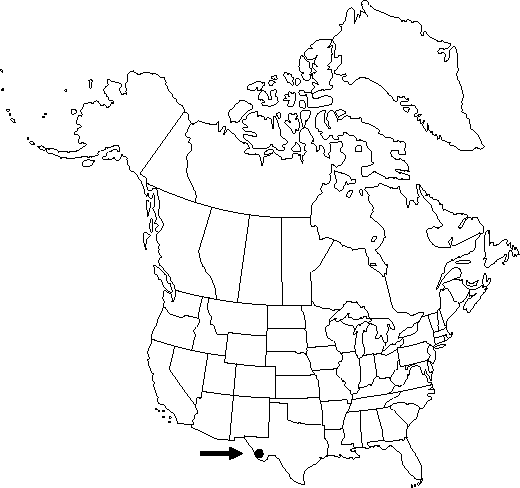Difference between revisions of "Aquilegia hinckleyana"
Gentes Herb. 7: 141. 1946.
imported>Volume Importer |
imported>Volume Importer |
||
| Line 59: | Line 59: | ||
|publication year=1946 | |publication year=1946 | ||
|special status=Conservation concern;Endemic | |special status=Conservation concern;Endemic | ||
| − | |source xml=https:// | + | |source xml=https://bitbucket.org/aafc-mbb/fna-data-curation/src/2e0870ddd59836b60bcf96646a41e87ea5a5943a/coarse_grained_fna_xml/V3/V3_108.xml |
|genus=Aquilegia | |genus=Aquilegia | ||
|species=Aquilegia hinckleyana | |species=Aquilegia hinckleyana | ||
Latest revision as of 21:45, 5 November 2020
Stems 50-70 cm. Basal leaves 2×-ternately compound, 30-40 cm, much shorter than stems; leaflets green adaxially, to 20-40 mm, not viscid; primary petiolules 25-50 mm (leaflets not crowded), pilose. Flowers suberect; sepals perpendicular to floral axis, yellow, ovate, 25-34 × 14-18 mm, apex obtuse; petals: spurs yellow, straight, ± parallel, 40-56 mm, slender, evenly tapered from base, blades yellow, oblong, 19-23 × 13-17 mm; stamens 17-20 mm. Follicles 20-25 mm; beak 20 mm.
Phenology: Flowering spring (Mar–Apr).
Habitat: Dripping cliffs
Elevation: 1000 m
Discussion
Of conservation concern.
Aquilegia hinckleyana is endemic to Capote Falls, Presidio County, Texas. The key and description above are based on specimens seen. E. J. Lott (1979) gave the range of sepal width in A. hinckleyana as 9-17 mm, thus overlapping the range in A. chrysantha. She considered sepal shape to be the most reliable key character for distinguishing these species, with sepals less than 2.5 times as long as wide in A. hinckleyana and more than 2.5 times as long as wide in A. chrysantha. Perhaps because of the overlap in characters, she later reduced A. hinckleyana to a variety of A. chrysantha (E. J. Lott 1985). Until her data are published, I prefer to follow the established taxonomy.
Selected References
None.
